Many times, one light is enough.
The master of the “one light,” Zack Arias once racked up a huge debt from being a gear head. From this experience, he learned to use the bare minimum equipment and came out stronger as a photographer. As someone who has been a gear head myself, I subscribe to Zack’s philosophy that a little gear can go a long way. After all, we are trying to develop not a collection of stuff, but a body of knowledge with which we create artistic interpretations of what is around us.
So, one light is enough.
The effectiveness of lighting depends on where you place it, how much power you give it, and what it does to enhance the composition of the image.
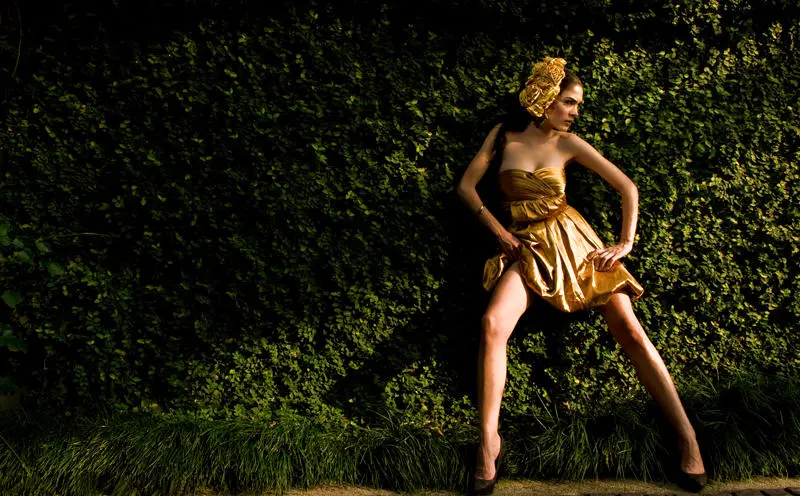
One light can enhance ambient light. Copyright Aloha Lavina.
The photo above was made in late afternoon. The sun was descending, and it made these wonderful streaks across a vine-covered wall. I asked Afrodite to stand in front of the wall, positioning her where the sun’s rays would spotlight her in the brilliant gold dress.
I also placed a bare flash gun camera right and above her head, tilted so it shone a light parallel to where the sun’s rays fell. I put a light shaper tool called a snoot on the bare bulb—essentially a cereal box I had cut and taped together with black duct tape so it fit on the front of my flash, but that’s another story— focusing the light specifically on her head.
Because the composition already had the sharp slice of shadows and streaks of light from the sun, I only needed a pop of light to remove some shadows from the model’s face. I opted to give the flash the intensity of 1/32. That was enough to enhance the sun’s light without overpowering it, and the portrait looks like it was lit with natural light.
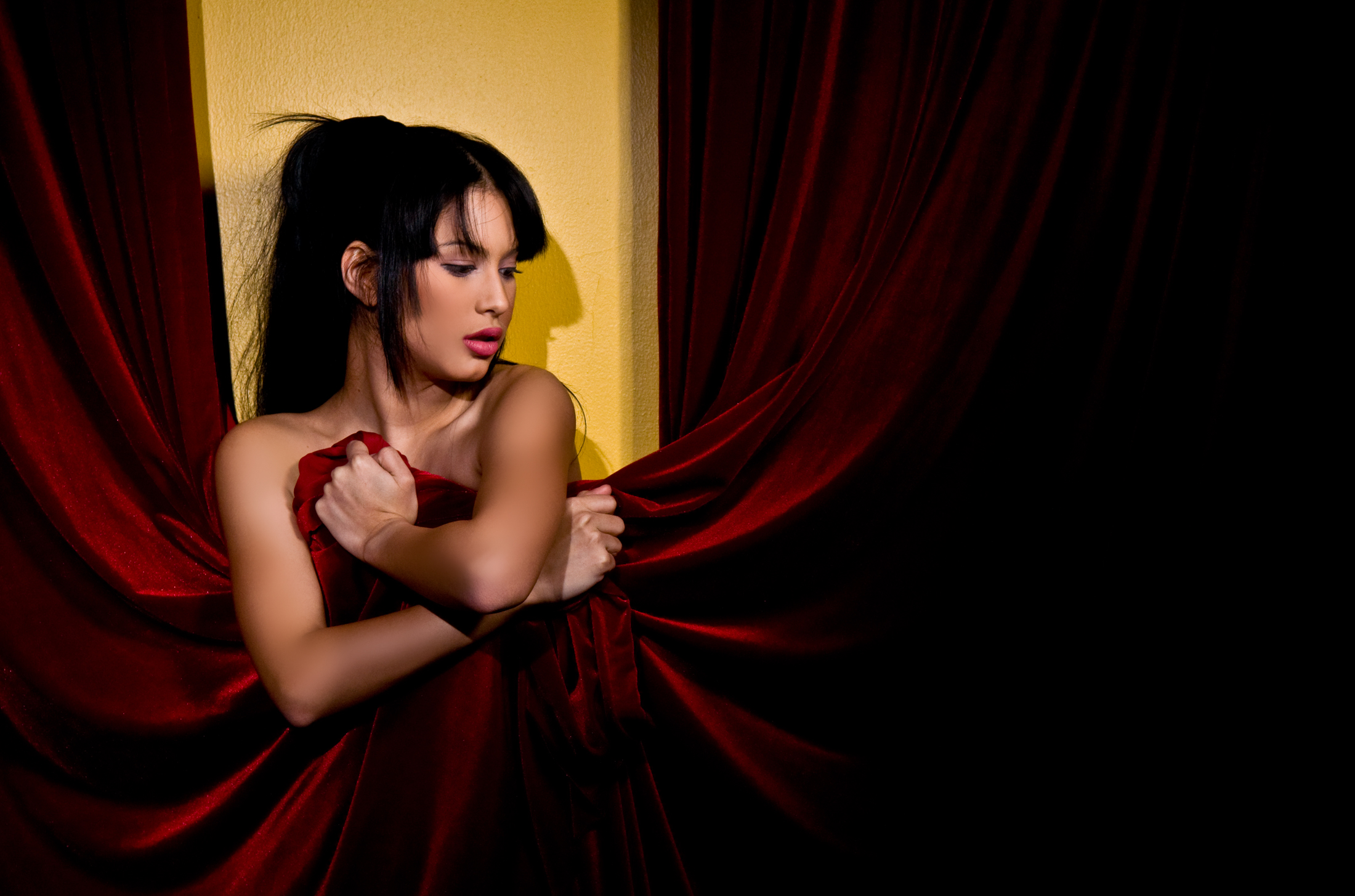
Who would have thought a bare light could be this soft? Copyright Aloha Lavina.
Even in a room without large windows, it’s possible to use just the one light. For the shot above of Angie with the burgundy curtain, I placed a bare flash about two meters in front and above her head, zoomed out to a wide range, around 24mm, so I could illuminate her and parts of the curtains.
I asked Angie to play with the drapes and waited for just the right moment to take this image. The result is soft light, almost like that from a beauty dish, but it was actually from the light of one bare flash. Who knew that undiffused light could be so soft?
The trick was to control the amount of light that came out of the flash. I triggered the flash with my on-camera flash on commander mode, and the effect I wanted was of lamplight in a room—soft, with soft shadows. The flash firing at 1/40 was enough to create the lamplight effect.
Arias mastered his shoot-through umbrella along with the one light. I prefer to use a 60 cm softbox. It’s one of these inexpensive, non-brand items that fold up like a reflector. It’s light and I can use it with portable flash guns: great for portability and flexible set-ups.
I used the softbox to enhance the window light in the shot of Chloe below. This image was taken around one in the afternoon. Lots of harsh light outside. But in this broken building with the North facing window, that harsh light came in softer than it would have been without the roof. I wanted to enhance that softness; my model had a soft look, and soft light would accentuate that. So I placed one light in a softbox, firing at 1/16 to approximate the window light, about half a meter away from the model. The result was an image that had brilliant, diffused window light.
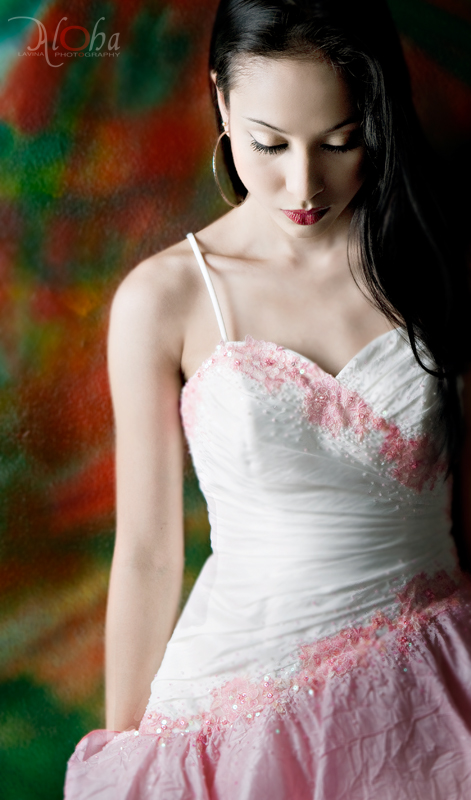
One light plus one light shaping tool equals soft portrait. Copyright Aloha Lavina.
With one light, you have the advantage of learning everything you can about how minimal gear can help you make magic. It’s true that learning how to light with only one strobe can be a challenge. But it’s a challenge that doesn’t hurt your pocket, and can only help your skill.

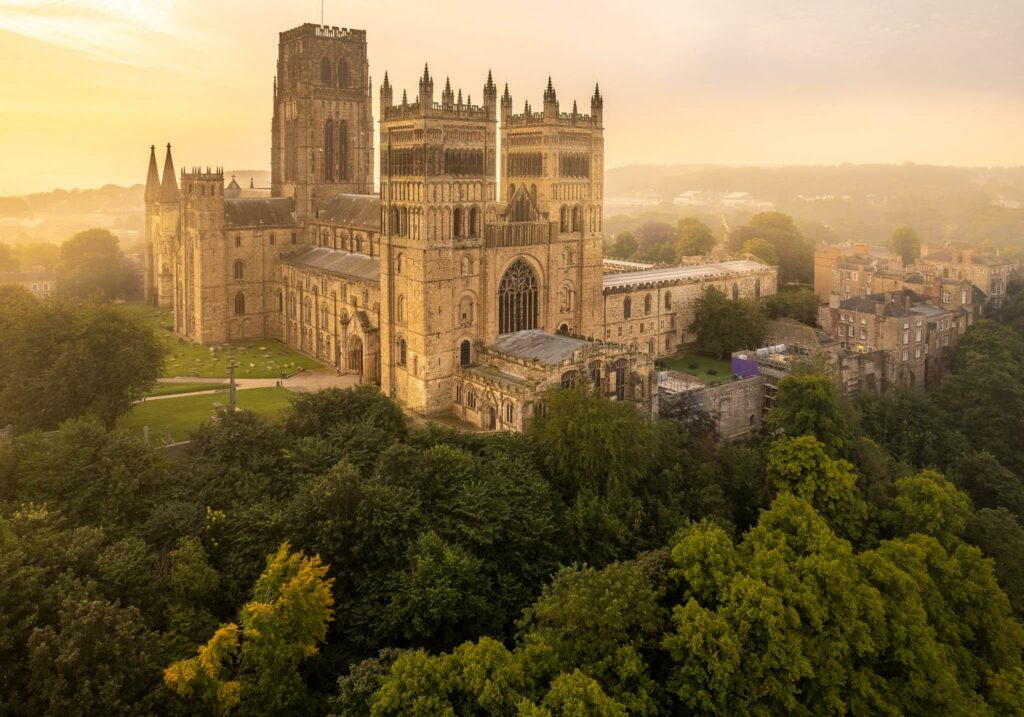
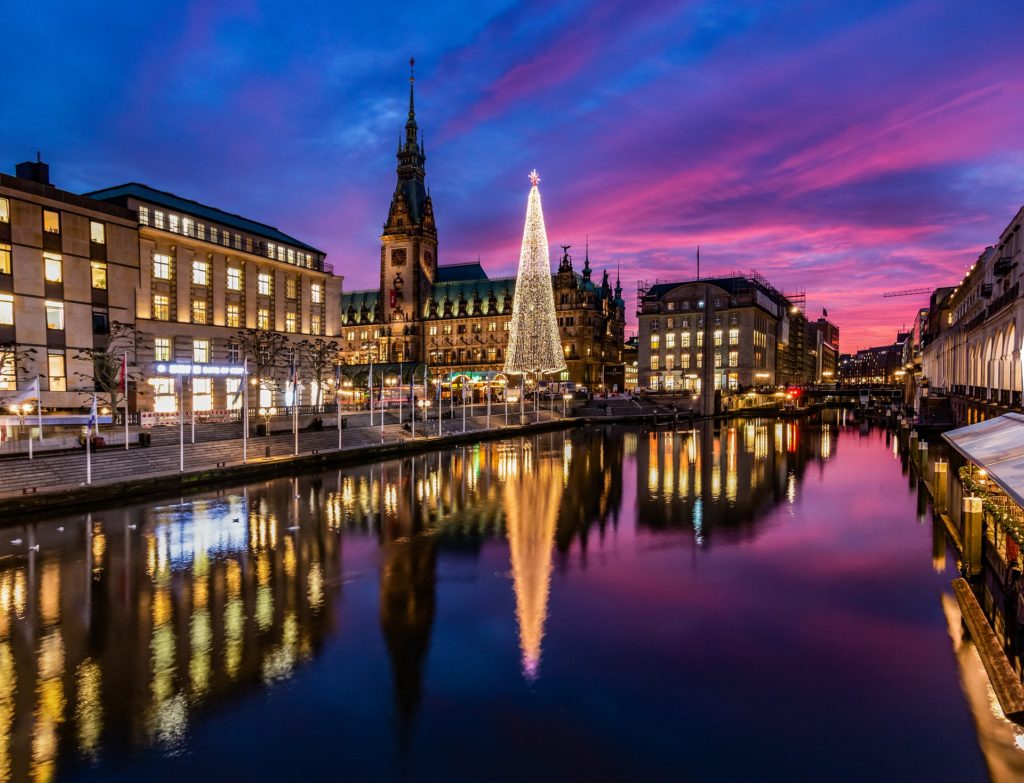
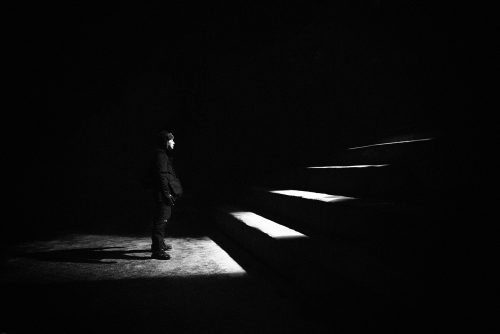
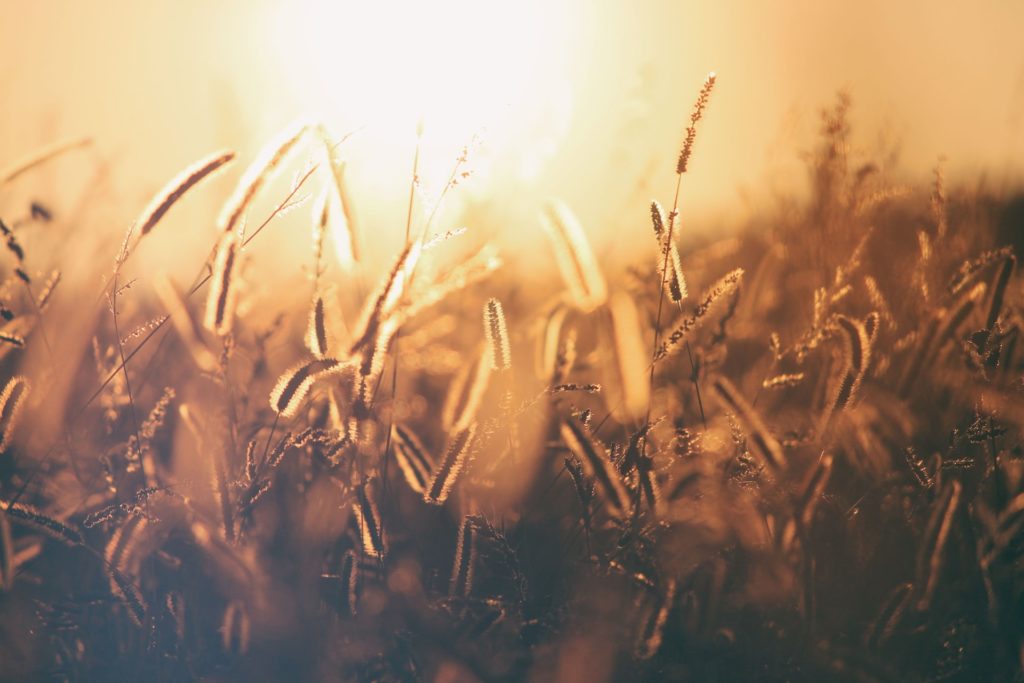
12 Comments
There is no doubt that a single light source, when done correctly, provides a certain mood to the photograph. I believe this is largely due to the fact that there are more (and deeper) shadows than when multiple light sources are used. I regularly use a single speedlite on-location to accentuate the available light and use a single reflector to bounce some light back on the subject.
Hi Detroit Photog,
I wholeheartedly agree. Shadows do make more drama and depth to a shot. Thanks for taking time to write your thoughts!
Some wonderful images and great information. Here is an image that I just took today using one flash to help light my face better.
https://www.flickr.com/photos/ken-b-images/5593363841/
Hi Ken, great shot! Love the compo too, the triangle formed by lines balances it well. Thanks for sharing.
Easy mistake to make is more kit more kit… but what you really need is more practice more practice… lovelly images u have…
Yes, practice, more practice is key. Thanks!
For sure some useful information. And you’re right, always (try to) use one ‘main’ light (emulating the sun) … with or without using a reflector/bouncer (emulating reflecting surfaces, walls, floor, etc.) … other light sources if used should be accentuations … barely noticeable and not disturbing the overall picture.
Some very old work … one light
https://lh4.googleusercontent.com/_bgbtrT3zjww/SIfjgdhvK4I/AAAAAAAAEZA/oqh_Qv2hIPE/s640/BW0005.jpg
I think that, contrary to what Detroit Photographer says, there are [u]not always[/u] more or deeper shadows, it depends on the kind of light source … distance, environment (ceiling height, color, distance to walls), direction of the light … frontal or angled …
https://lh5.googleusercontent.com/_bgbtrT3zjww/SIfjdzXqK7I/AAAAAAAAEYo/Go58LcQ3KoE/s640/BW0002-1.jpg
More ‘one light’ old work (plus background light) … is that two?
https://lh3.googleusercontent.com/_bgbtrT3zjww/SIfjhCG_QGI/AAAAAAAAEZI/vKkBAk-C3nM/s640/BW0006.jpg
And yes Aloha, you have some great images. I like your style. Congrats.
@Ken, using another flash makes it a two light image 😉 … sun+flash
Hi Marc, thanks for the kind words. I love your shots here. Thanks for sharing!
Good stuff — light is sort of like cropping — start as minimally as you can and don’t add anything that isn’t absolutely essential.
Hi Robert, very good summary there. “Fill the frame” applies to everything–the compo, the light, nothing more, nothing less.Thanks!
I have been contemplating whether I can get away with just using one speedlite at photo shoots. you have restored my confidence with this article. thanks!!!!
A great light source helps creates a great picture. I wish I could forward this article to all the pretend photographers out there. (Can you tell the lack of proper light in photos is a pet peeve of mine?)